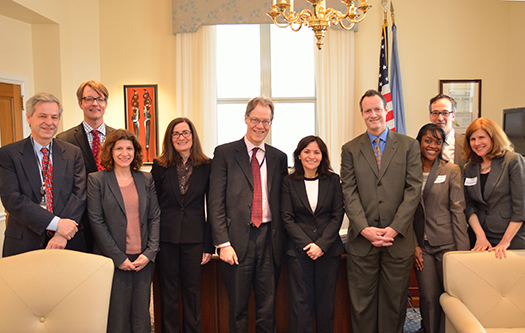As part of its ongoing crackdown on misleading endorsements in advertising, the Federal Trade Commission has charged the home security company ADT LLC with misrepresenting that paid endorsements from safety and technology experts were independent reviews. Under an agreed-upon settlement, ADT is prohibited from misrepresenting paid endorsements as independent reviews in the future.
Boca Raton, Florida-based ADT manufactures and markets the ADT Pulse home security and monitoring system and various other security products and services. The FTC’s administrative complaint alleges that ADT paid spokespeople to demonstrate and review the ADT Pulse on NBC’s Today Show, as well as other television and radio news programs and talk shows across the country, and in blogs and other online material. ADT, the FTC alleges, misrepresented that the reviews were independent, and failed to disclose that the experts were being paid by ADT to promote the Pulse system.
“It’s hard for consumers to make good buying decisions when they think they’re getting independent expert advice as part of an impartial news segment and have no way of knowing they are actually watching a sales pitch,” said Jessica Rich, Director of the Federal Trade Commission’s Bureau of Consumer Protection. “When a paid endorser appears in a news or talk show segment with the host of that program, the relationship with the advertiser must be clearly disclosed.”
ADT paid three spokespersons, including a child safety expert, a home security expert, and a technology expert, more than $300,000 to promote the ADT Pulse, with one spokesperson receiving more than $200,000. Two of those spokespersons also received a free ADT Pulse security system, valued at approximately $4,000, and free monthly monitoring service, according to the complaint. In exchange, the spokespersons appeared on more than 40 different television and radio programs nationwide and posted blogs and other material online.
ADT set up media interviews for the endorsers through its public relations firms and booking agents – often providing reporters and news anchors with suggested interview questions, and background video, also known as b-roll, according to the complaint. The paid ADT endorsers were introduced by program hosts as experts in child safety, home security, or technology, usually with no mention of any connection to ADT. The endorsers sometimes demonstrated child safety, home security, or technology products other than the ADT Pulse, adding to the impression that they were providing an impartial, expert review of the products.
The proposed order:
- prohibits ADT from misrepresenting that any discussion or demonstration of a security or monitoring product or service is an independent review provided by an impartial expert;
- requires ADT to clearly and prominently disclose, in connection with the advertising of a home security or monitoring product or service, a material connection, if one exists, between an endorser and the company; and
- requires the company to promptly remove reviews and endorsements that have been misrepresented as independently provided by an impartial expert or that fail to disclose a material connection between ADT and an endorser.
The Commission vote to issue the administrative complaint and to accept the agreement containing the proposed consent order for public comment was 4-0. The FTC will publish a description of the complaint and consent agreement in the Federal Register shortly. The agreement will be subject to public comment for 30 days, beginning today and continuing through April 7, 2014, after which the Commission will decide whether to make the proposed consent order final. Interested parties can submit written comments electronically or in paper form by following the instructions in the “Invitation To Comment” part of the “Supplementary Information” section. Comments in electronic form should be submitted using the following Web link: https://ftcpublic.commentworks.com/ftc/adtconsent and following the instructions on the web-based form. Comments in paper form should be mailed or delivered to: Federal Trade Commission, Office of the Secretary, Room H-113 (Annex D), 600 Pennsylvania Avenue, N.W., Washington, DC 20580. The FTC is requesting that any comment filed in paper form near the end of the public comment period be sent by courier or overnight service, if possible, because U.S. postal mail in the Washington area and at the Commission is subject to delay due to heightened security precautions.
NOTE: When the Commission issues a consent order on a final basis, it carries the force of law with respect to future actions. Each violation of such an order may result in a civil penalty of up to $16,000.
The Federal Trade Commission works for consumers to prevent fraudulent, deceptive, and unfair business practices and to provide information to help spot, stop, and avoid them. To file a complaint in English or Spanish, visit the FTC’s online Complaint Assistant or call 1-877-FTC-HELP (1-877-382-4357). The FTC enters complaints into Consumer Sentinel, a secure, online database available to more than 2,000 civil and criminal law enforcement agencies in the U.S. and abroad. The FTC’s website provides free information on a variety of consumer topics. Like the FTC on Facebook, follow us on Twitter, and subscribe to press releases for the latest FTC news and resources.


 FTC Chairwoman Edith Ramirez and UK Information Commissioner Christopher Graham signing the Memorandum of Understanding
FTC Chairwoman Edith Ramirez and UK Information Commissioner Christopher Graham signing the Memorandum of Understanding FTC Chairwoman Edith Ramirez, UK Information Commissioner Christopher Graham, FTC Commissioner Julie Brill, and FTC staff present for the signing
FTC Chairwoman Edith Ramirez, UK Information Commissioner Christopher Graham, FTC Commissioner Julie Brill, and FTC staff present for the signing